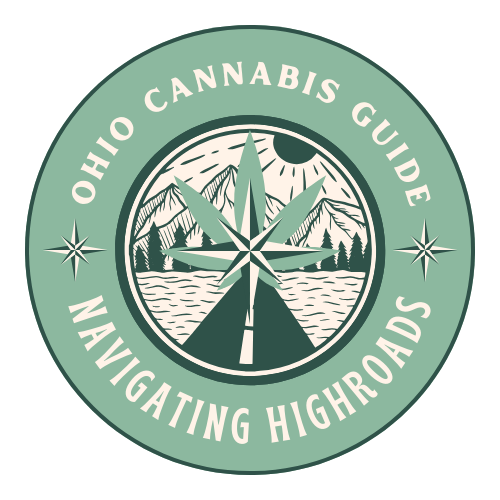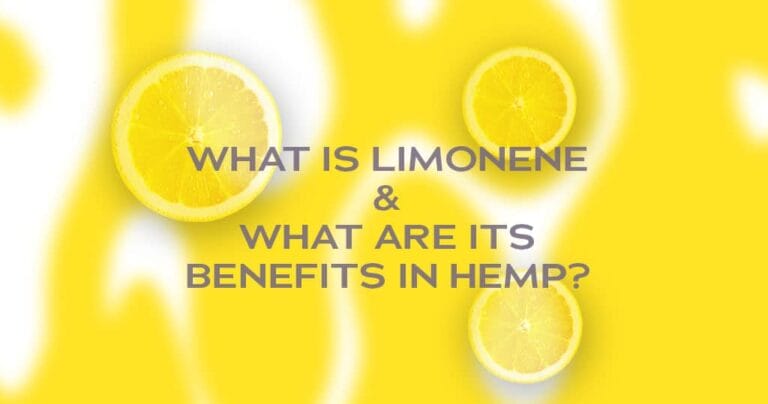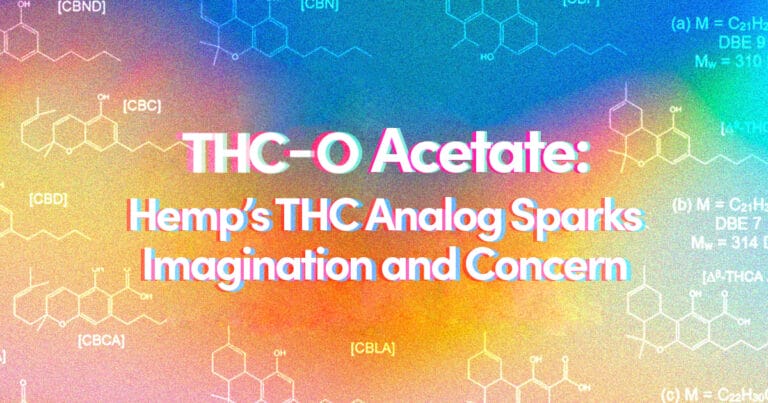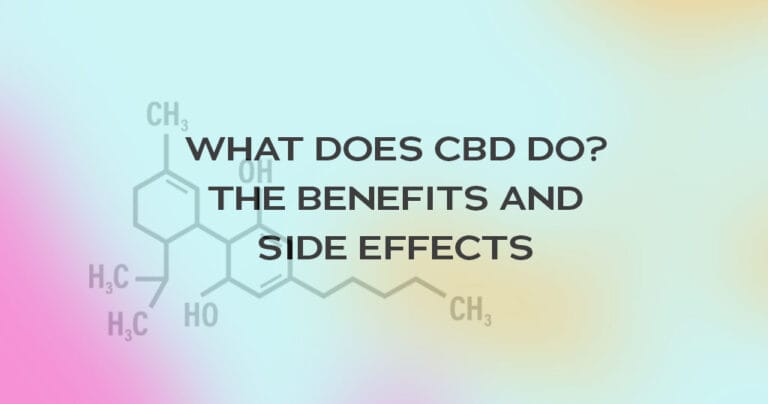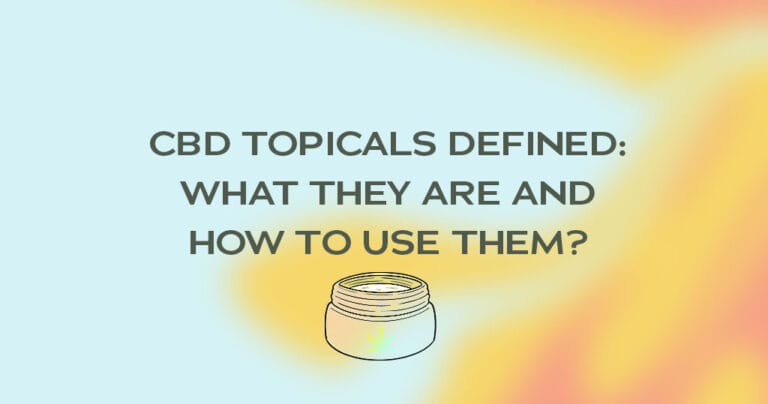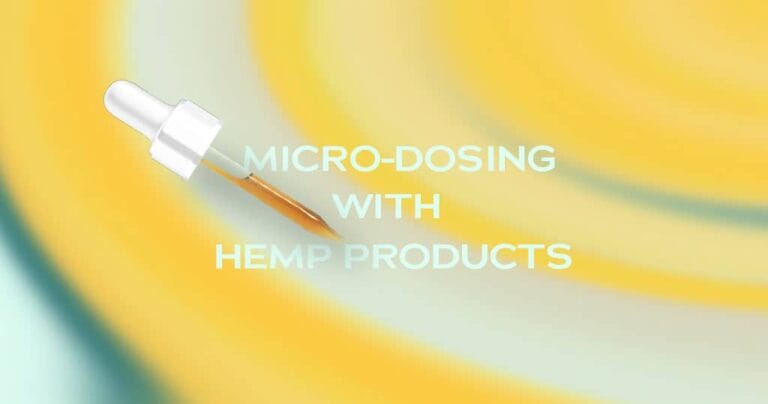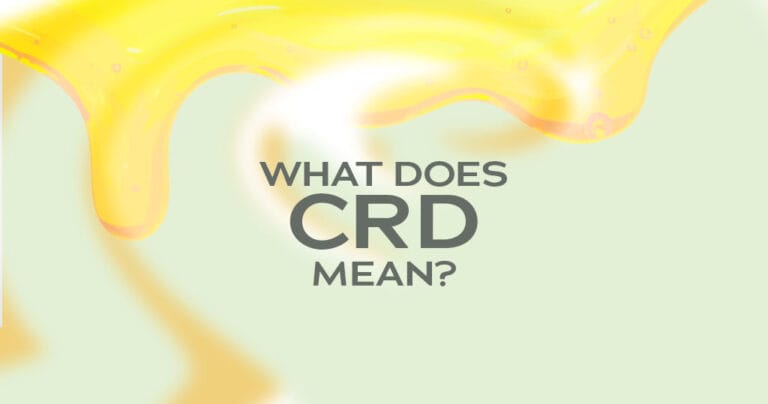Top 5 CBD Myths You Need to Know Explained
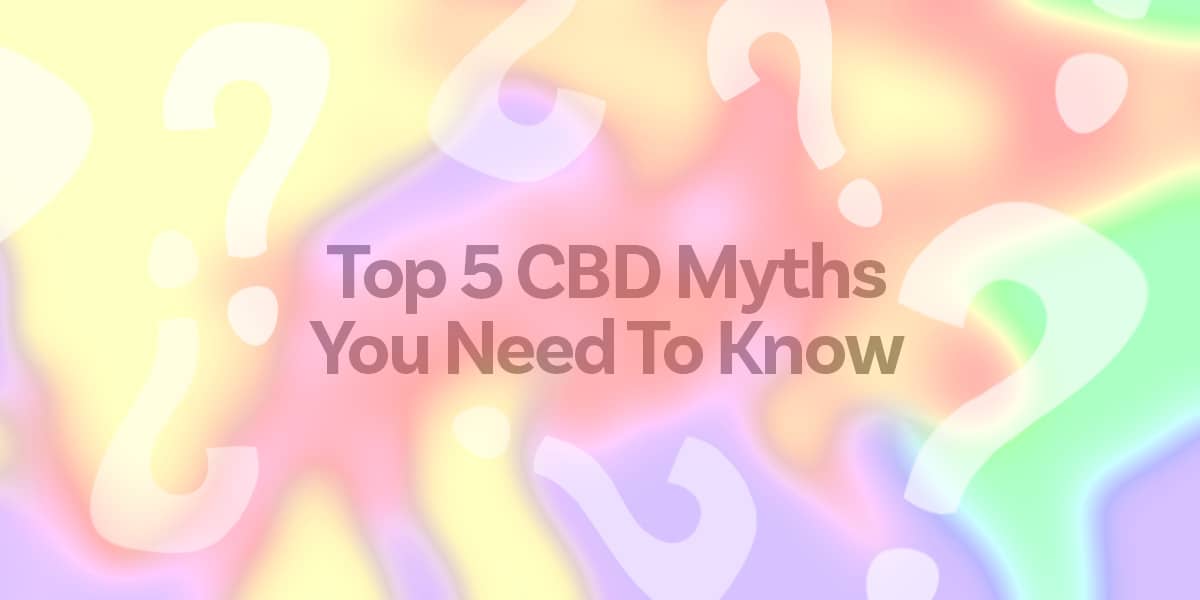
Top 5 CBD Myths You Need to Know Explained Today
Have you heard about CBD? You may have seen it mentioned on TV, or read articles online. But what is the truth behind this oft-mentioned acronym? Despite the widespread availability of CBD products, myths about CBD are ever-present.
I know that many of us are hesitant to do anything with cannabis hemp right now because of all the misinformation out there.
However, my goal here is not only to dispel these rumors but also to give you an honest look at how much CBD actually does for your body. You may be surprised by the results!
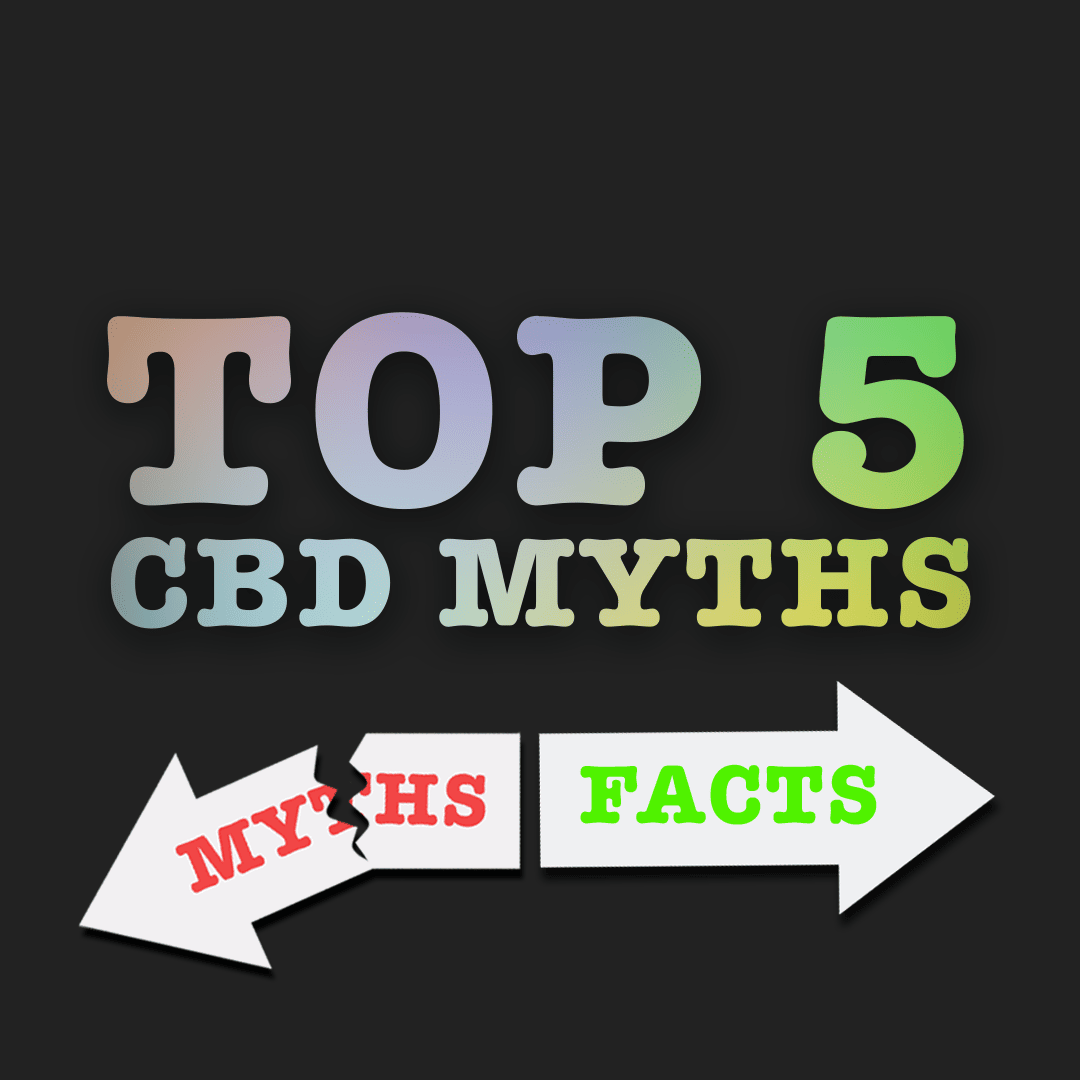
Learn The Truth About CBD
CBD is often confused with THC, the intoxicating compound in cannabis"Cannabis" is a broad term that refers to a flowering plant scientifically known as Cannabis Sativa L. The term is commonly used to describe the cannabis plant and its products... More. Additionally, there are misconceptions about how CBD works and what it can be used for.
Some people believe that CBD is a cure-all for everything, but there is currently no scientific evidence to support these claims.
CBD does have a number of potential benefits, but more research is needed to determine its efficacy.
CBD is becoming more and more popular as a natural treatment for various conditions. With that being said, there are still many myths surrounding CBD – and we are going to bust them right now.
What Are the Top 5 Myths About CBD That People Need To Know?
Myth #1: CBD Is A Sedative
Cannabidiol Facts: CBD is Difficult to Categorize
CBD is a complex compound that does not easily fit into any one category. Some people believe that CBD is a sedative, but this has not been confirmed by scientific research. In fact, CBD may have the opposite effect for some people and can actually increase energy levels. More research is needed to determine the effects of CBD on different people. If you are interested to learn more about CBD with sleep we covered that in an in-depth blog already.
Myth #2: CBD Gets You Intoxicated or “High”
Cannabidiol Facts: CBD Is Non-Intoxicating with Benefits and Side Effects
There is no scientific evidence to support the claim that CBD oil products will get you intoxicated or “high.” In fact, CBD oil is known by many users to counteract the psychoactive effects of THC, which is the compound in cannabis that produces the feeling of being high. CBD oil is non-intoxicating and does not produce a “high” effect. CBD interacts with the body’s endocannabinoid system to produce its therapeutic effects, which is one reason why it is being increasingly used.
What Are the Benefits And Side Effects of CBD?
CBD has many potential health benefits. There are many different factors that will determine how CBD affects you, including the quality and potency of the product. Your own endocannabinoid system (ECS) plays a huge part in this outcome.
CBD is generally considered safe, with the potential for side effects. CBD can interact with prescription medication and you should always check before taking a supplement if you have medical issues. CBD can change how your body metabolizes certain medications, which may alter their therapeutic impact and blood levels.
Although side effects are usually mild, CBD does have some side effects that need to be taken into account before consumption. The most commonly reported side effects of CBD are dry eyes and mouth, drowsiness, nausea, and fatigue.
For more information regarding the benefits and side effects of CBD please read our previous blog.
Myth #3: CBD Is Not Safe
Cannabidiol Facts: CBD Is Safe
CBD has been used for thousands of years and there is no known case of severe side effects leading to death. However, in rare occurrences, some people may experience side effects from CBD like diarrhea, drowsiness, nausea, or fatigue. Always make sure to ask your doctor before taking CBD if you use any medications or have medical health conditions. Too much CBD can cause minor side effects like overstimulation of the ECS receptors, but it doesn’t pose any direct life-threatening harm.
CBD is safe for most people, but there are some special considerations when pregnant or with children under the age of 18. People who take medications may need to exercise caution with CBD and work with their GPs to explore its safety profile with their personal situation.
Myth #4: CBD Is Addictive
Cannabidiol Facts: CBD Is Non-Addictive
Cannabidiol (CBD)"Cannabidiol," commonly known as CBD, is one of many compounds found in the cannabis plant. It is non-psychoactive, meaning it does not produce a "high" like its counterpart THC (tetrahydrocannabinol).... More is a cannabinoid found in cannabis, specifically in large quantities in the hemp varieties. Hemp is a cannabis plant that has less THC (below 0.3%) and more CBD (1-20% typically).
As stated by the World Health Organization numerous times, CBD is a non-addictive compound. Its properties with the endocannabinoid system create differences in user dependence versus opioids that have caused so much havoc on so many.
Our body naturally produces anandamide, this endocannabinoid is produced by the body. Using phytocannabinoids from plants, like hemp, to reach equilibrium can allow for distinct advantages to individual well-being.
Myth #5: CBD Is Not Legal
Cannabidiol Facts: CBD Is Legal
The legality of CBD is without question. CBD products are federally legal in all 50 states, as long as the delta 9 THC content is below 0.3% by volume.
The Farm Bill of 2018 legalized CBD nationwide. CBD is mostly made from hemp plants, so naturally, the laws are involving farmers. Some of them are new to the medical uses of hemp CBD products and are getting educated quickly to understand the new consumer group. The FDA has taken action against some companies for making unproven health claims about their products and this has helped to reduce “scammers” and “snake oil salespeople” from the industry.
CBD is commonly the first and second highest cannabinoid found in hemp and marijuana plants depending on the human-guided expression for each variety. Varieties commonly referred to as strains by consumers and chemovars by cultivators are still at the beginning of an industry-standard classification system that takes all the variables into account. As the industry continues to grow, we will have a better idea of the most effective methods to overcome the early hurdles.
Are There Different Types of CBD Products Available?
CBD comes in three main consumer types: full-spectrum CBD, broad-spectrum CBD, and pure CBD isolate.
Full Spectrum CBD Products:
Full-spectrum CBD has other cannabinoids"Cannabinoids" are a diverse group of chemical compounds found in the cannabis plant, Cannabis sativa. These compounds interact with the body's endocannabinoid system, influencing various physiological processes. Both endocannabinoids that... More, which are the compounds found in cannabis hemp plants. Full spectrum CBD content includes all 100+ cannabinoids, essential oils, and other compounds. As long as you do not need to pass a drug test, then full-spectrum products are the most highly recommended. Typically, these products are made by companies seeking to provide natural solutions to your wellness goals. Also, using the full spectrum helps to engage your body the best.
Broad Spectrum CBD Products:
Next, broad-spectrum products contain the entire spectrum of compounds with the delta-9 THC removed. Broad Spectrum CBD is similar to Full Spectrum CBD, with one key difference: all trace amounts of delta-9 THC have been removed completely. This is a good decision to select when the user may need to pass a drug test and is still seeking help for health problems with a desire to have the greatest entourage effect.
CBD Isolate Products:
CBD isolate products have by design no delta-9 THC. Isolate CBD is 99% pure and removes all other cannabinoids, essential oils, or amino acids from the whole plant extract. This is great news for those that need to pass a drug test but still would like to use CBD. Although it is an isolated compound and will not produce a full entourage effect, it should still provide potential support with homeostasis.
CBD Product Forms:
Next, you will need to make sure to purchase a CBD product that is the right form. There are many ways to take CBD, such as using oils, gummies, or lotions. With many different products, some work for certain conditions better than others. For example, a tincture is better for internal conditions whereas a topical is better for directly treating an external spot.
CBD Gummies
CBD gummies, also known as hemp CBD gummies or edible CBD, are one of the most popular CBD products on the market. They include moderate levels of CBD, making them a safe item that may be able to assist with certain medical conditions. The best CBD gummies can be wildly helpful for those seeking relief and tasty too.
CBD Vapes
CBD vapes, also known as full spectrum CBD vape, CBD vape pen, or CBD disposable vape, are some of the most popular CBD products worldwide. It contains moderate to high levels of CBD, making it a workable solution to obtain immediate relief from a number of conditions. The fast onset is a big perk compared to edibles like gummies and capsules.
CBD Flower
CBD flower, also known as hemp CBD flower or smokable CBD, is one of the most in-demand items on the CBD market. It contains relatively low levels of CBD, making this a reliable product that can provide a number of benefits. Similar to vapes, the flower has a quick activation time and can be used readily on the go for symptom relief.
CBD Tinctures
CBD Tincture, also known as CBD oil or whole plant CBD oil, was what started the market for CBD products. They contain high levels of CBD, making them a potent product that can provide relief from a variety of internal conditions. When properly used it can be sublingually applied allowing for direct access to the user’s bloodstream.
CBD Topicals
Topical CBD, also called hemp lotion, CBD muscle rub, or hemp cream, is an in-demand product among CBD products because it is a one-stop shop for getting relief from a variety of issues. Depending on their concentration levels, CBD topicals can be an effective way to treat issues ranging from minor pain to major discomfort with active athletics.
Where Can I Find Reputable Brands Selling Quality CBD Products?
Finding reputable brands can sometimes feel like a challenge due to the sketchy people that were first involved with CBD. Preparing yourself with proper search terms like “full-spectrum CBD”, “whole plant CBD”, and “lab-tested CBD” will help you to discover quality products online and avoid scammers. One of the most important things as a consumer is to check the lab results to make sure the potency and safety are correct. Products may be unsafe if they have microbial, metals, or mycotoxins due to poor cultivation"Cultivation" in the context of cannabis refers to the process of growing and nurturing cannabis plants to produce usable and desirable cannabis products. Cultivation involves various stages, including germination, vegetative... More and harvesting practices.
Another place to find quality products is in brick-and-mortar stores like smokeshops and vape shops near you. These can be found with a simple search in your phone’s maps for nearby smoke shops, vape shops, and headshops. Once you find a quality store with positive reviews, take some time to visit and ask the owner to help you learn more about the products that they offer.
Common CBD Myths Explained
There are many common myths surrounding CBD products, such as that it is a scam or has no benefits. As we took a look at the most common myths revolving around how and why it is used. Most people have yet to try it and without experience, it can be a bit confusing to understand.
In conclusion, CBD is a non-psychoactive cannabinoid that many users report benefits from. CBD is legal in all 50 states, and you can purchase it without a prescription. However, there are many CBD myths that need to be debunked. CBD is not addictive, it does not make you high, and it is not dangerous. If you are interested in trying CBD, talk to your doctor about the best way to get started.
What CBD Myths Have You Heard?
There are many myths about CBD that circulate online and in the general population. Some of these myths include that CBD can get you high or that it is a new, untested product. In reality, CBD is becoming a more researched compound and it has been used for centuries already.
We would love to hear from you firsthand about an experience with CBD myths and facts that busted them. Sometimes things come to our understanding in strange and funny ways. If you have an interesting story please comment below, we would love to hear from you!
*CBD information in this article is not meant to diagnose or recommend medical treatment for a medical condition or disease. Always seek the advice of qualified health professionals before commencing a new treatment program.
